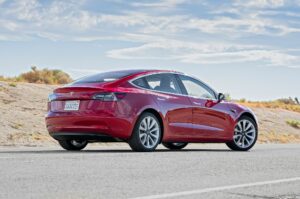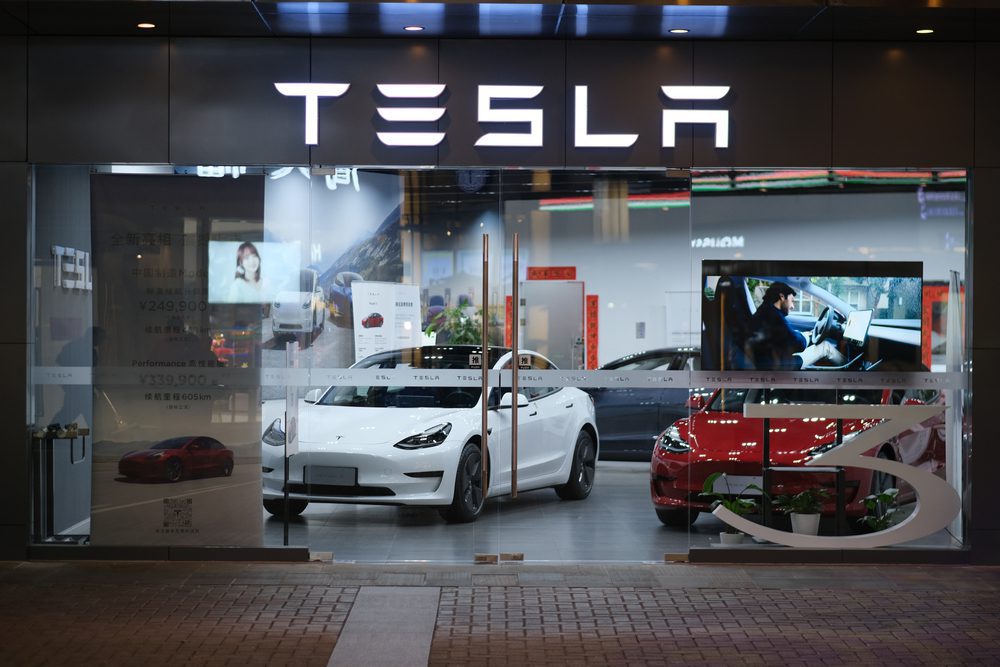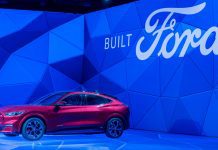Tesla is continuing to maintain its ownership of the electric vehicle (EV) industry, as a report this week indicated the automaker had delivered 308,600 Tesla vehicles in Q4 2021. This surpassed Q3 2021 deliveries, which totaled 241,300 and was the record at the time. The Detroit News reported this number was over 87% of 2020’s deliveries and was higher than the 263,000 expected deliveries according to initial Bloomberg interviews with 13 analysts.
| Related: Elon Musk named ‘TIME’ Person of the Year 2021 |
 Model 3 and Model Y vehicles made up for most of the deliveries, while the Model S and Model X vehicles totaled short of 3% for the quarter. To put precise numbers on it, Model 3 and Model Y vehicles accounted for 296,850 deliveries and the other two models accounted for 11,750 deliveries. Production was also solid in Q4, with Tesla reporting it had produced 305,400 vehicles for the quarter.
Model 3 and Model Y vehicles made up for most of the deliveries, while the Model S and Model X vehicles totaled short of 3% for the quarter. To put precise numbers on it, Model 3 and Model Y vehicles accounted for 296,850 deliveries and the other two models accounted for 11,750 deliveries. Production was also solid in Q4, with Tesla reporting it had produced 305,400 vehicles for the quarter.
Tesla shares spiked over 13% after the metrics were released, closing at $1,199.78. The posted numbers would mean that Tesla’s production rate may reach more than 1.2 million annually, which is quite significant for the production of EVs at this point.
While the Q4 numbers were a major plus for Tesla seeing as its success is measured partly by delivery numbers, the automaker is not free from other troubles. Just last week, Reuters reported that Tesla announced it was recalling 475,000 vehicles in the U.S. “to address rearview camera and trunk issues that increase the risk of crashing.” Of course, this is in addition to the ongoing investigations into Tesla’s Autopilot software that has allegedly caused crashes in the past few years.
Tesla has also recently been called on to close its showroom in the Xinjiang region of China due to allegations of human rights abuses and discrimination against religious minorities.
Like every other automaker, Tesla has also been impacted by the pandemic and parts shortages for almost two years, primarily struggling to obtain semiconductor microchips. At one point last year, CEO Elon Musk even referred to the issues as a “supply chain nightmare” despite the fact that Tesla’s engineers swiftly altered the software of Tesla vehicles to preserve needed parts. To further mitigate the issues, CNBC reported that Tesla increased production at its China plant in 2021 and made “technical changes” to cars made at its California plant so it could “ditch some parts altogether.”
Tesla also began facing more competition in the EV realm last year, with most other automakers pledging to quickly develop EVs to reduce emissions and curb pollution. Notably, Ford is shaping up to be one of Tesla’s fiercest competitors, as shares jumped 140% through 2021.
In the Fall of 2021, Tesla said it was moving its headquarters to Austin, Texas, and had plans to begin operating its factory there. Ultimately, Tesla would like to continue seeing increased production and deliveries as well as get more of its Cybertruck models on the road. Musk has also said the automaker is looking to build a manufacturing plant in Germany.
Did you enjoy this article from Kimberly Hurley? Read other articles on CBT News here. Please share your thoughts, comments, or questions regarding this topic by submitting a letter to the editor here, or connect with us at newsroom@cbtnews.com.
Be sure to follow us on Facebook and Twitter to stay up to date or catch-up on all of our podcasts on demand.
While you’re here, don’t forget to subscribe to our email newsletter for all the latest auto industry news from CBT News.










